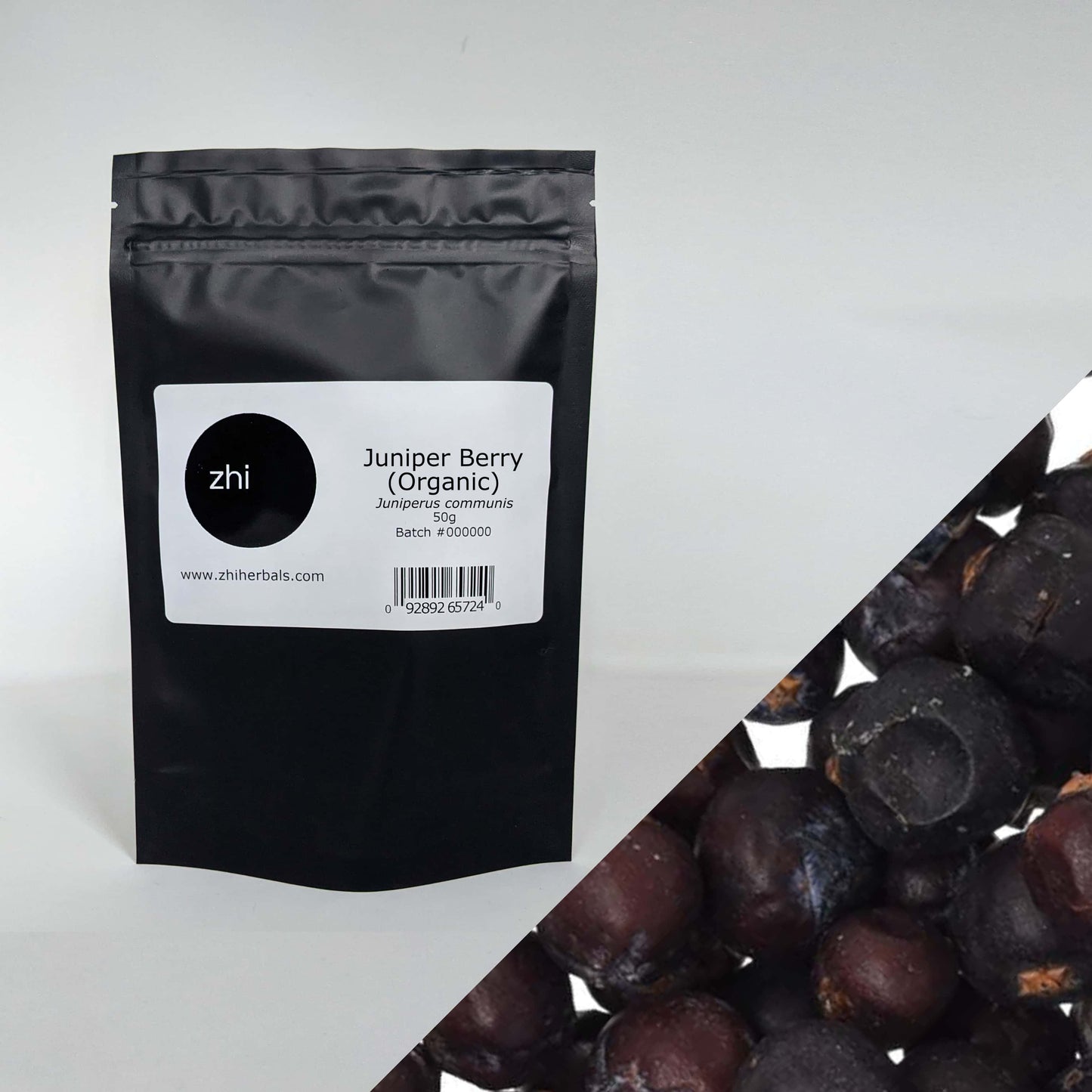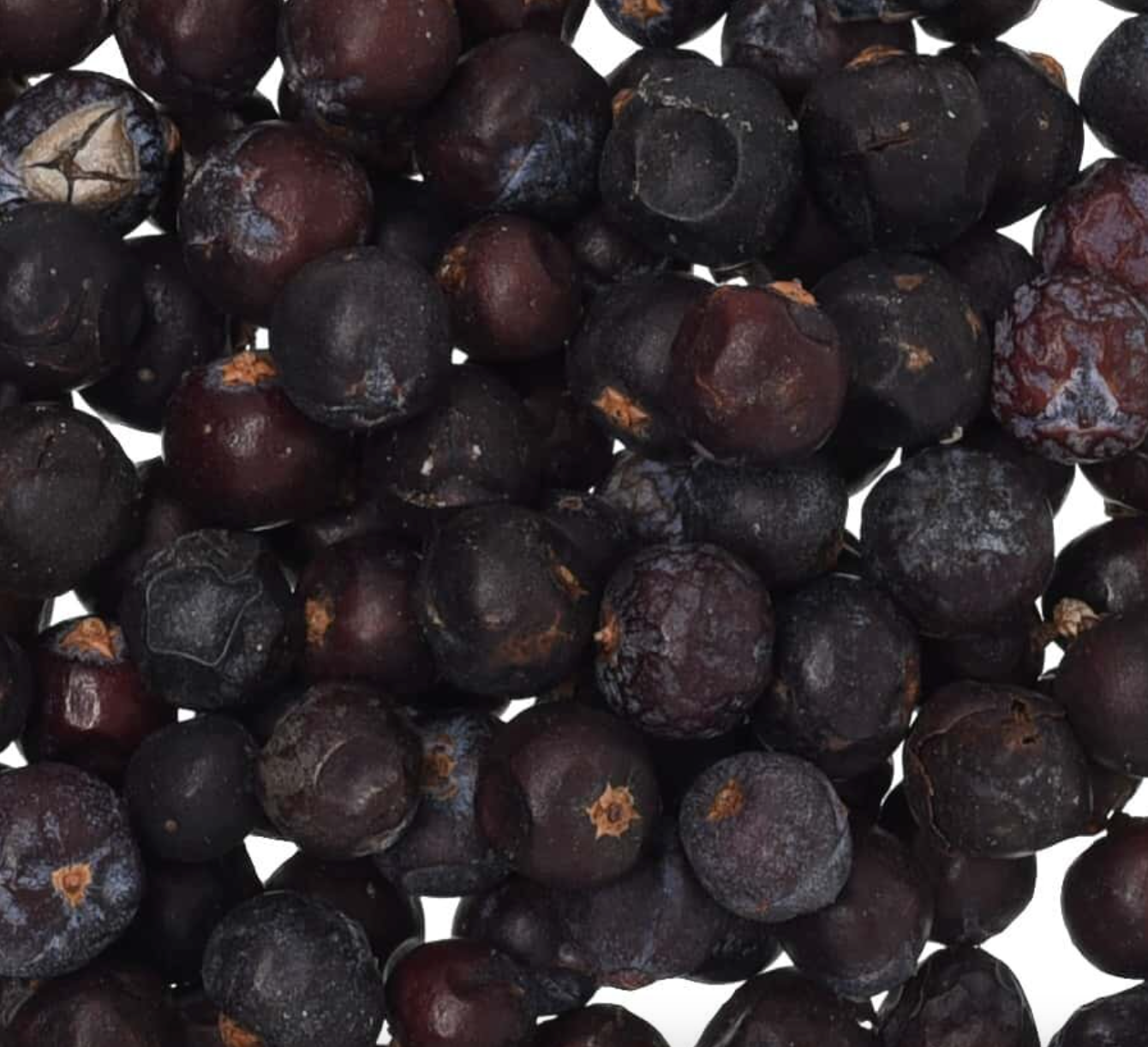Zhi Herbals
Juniper Berry (Organic)
Juniper Berry (Organic)
Couldn't load pickup availability
Common Name
Juniper, Common Juniper
Latin Name
Juniperus communis
Origin
Croatia
What Is Juniper Berry?
Juniper berries come from the juniper tree, an evergreen tree native to Europe, Asia, and North America. Though often colloquially termed a berry, juniper berries are actually a female seed cone. Juniper is a popular herbal remedy for urinary conditions and arthritis. In cooking, juniper is used as a seasoning for beef, bison, venison, and lamb, as well as an ingredient in cocktails and gin. Juniper berries are a dark purple-blue color, and have been enjoyed by humans since at least 1500 BCE.
How to Use Juniper Berries (Common Uses)
Juniper berries are often taken internally as a tea, decoction, powder, capsules, or extract. Juniper berries work well both on their own and when combined with other herbs. Juniper has many culinary uses and is a well-known cooking ingredient. Juniper is best used on a short-term basis and should be avoided by those with kidney disease or who are pregnant. Visit our herbal blog for more information on learning how to cook with juniper.
Medicinal Uses and Benefits of Juniper Berry
Juniper is often used in herbal medicine for urinary tract infections and rheumatism. It has powerful antiseptic and diuretic effects. Juniper berries stimulate kidney function and promote the elimination of waste, which can also indirectly support skin health. Moreover, juniper berries are useful as a digestive aid, and can help to alleviate gas, bloating, and other stomach upsets.
Active Constituents in Juniper Berries
Volatile oil, tannins, flavonoids, glucuronic acid.
Notable Facts About Juniper Berry
Juniper is the symbol of Canaanites fertility goddess Ashera. In Western Europe, folklore held that a juniper tree planted near the door of a house would prevent witches from entering.
In Scotland, juniper has been used to ward off the evil eye, and in Tibet to remove demons.
For more information on juniper, check out our article Juniper Berry Benefits.
Share




